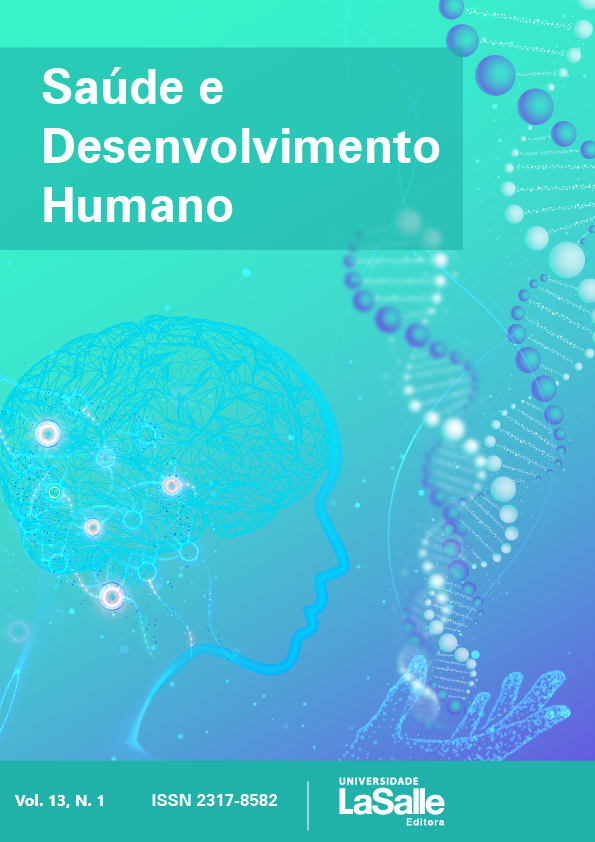COVID 19: Implications of social isolation on the well-being and lifestyle habits of brazilian pregnant women
DOI:
https://doi.org/10.18316/sdh.v13i1.11162Resumo
Introduction: The COVID-19 pandemic affected various population groups, particularly pregnant women who experienced the impacts of changes in family dynamics, lifestyle habits, and psychological disturbances.
Objective: To assess changes in lifestyle habits and perceived stress among Brazilian pregnant women who experienced social isolation during the COVID-19 pandemic.
Methods: A cross-sectional study was conducted between October and November 2020 using an online questionnaire. Data were collected on sociodemographic, economic, and lifestyle characteristics. Additionally, perceived stress was assessed using the Perceived Stress Scale (PSS-10). The data were tabulated in Excel, and statistical analyses were performed using the Statistical Package for the Social Sciences (SPSS). Chi-square tests and Spearman's rank correlation were conducted to evaluate associations and correlations between perceived stress and sociodemographic variables and lifestyle habits.
Results: The sample consisted of 85 pregnant women with a mean age of 31.33 ± 4.87 years. A negative correlation was observed between perceived stress and age (r = -0.318) and a positive association between worsening sleep quality and reduced physical activity (p = 0.022). The level of perceived stress was 21.2 ± 6.88 points, considered moderate to high.
Conclusion: There were changes in lifestyle habits and perceived stress among pregnant women during the COVID-19 pandemic
Downloads
Publicado
Edição
Seção
Licença
Copyright (c) 2025 Saúde e Desenvolvimento Humano

Este trabalho está licenciado sob uma licença Creative Commons Attribution-NonCommercial 4.0 International License.
Autores que submetem seus manuscritos para serem publicados nesta revista concordam com os seguintes termos:
- Autores mantêm os direitos autorais e concedem à revista o direito de primeira publicação, com o trabalho simultaneamente licenciado sob a Licença Creative Commons Attribution que permite o compartilhamento do trabalho com reconhecimento da autoria e publicação inicial nesta revista.
- Em virtude dos artigos aparecerem nesta revista de acesso público, os artigos são de uso gratuito, com atribuições próprias, em aplicações educacionais e não-comerciais.
- Os autores concordam com os termos da Declaração de Direito Autoral, que se aplicará a esta submissão caso seja publicada nesta revista (comentários ao editor podem ser incluídos a seguir). E que anexam declaração assinada que todos os autores leram o documento a ser submetido e que aceitam os termos desta revista.

Os trabalhos publicados na Revista Saúde e Desenvolvimento Humano de ISSN 2317-8582 está licenciado com uma Licença Creative Commons - Atribuição-NãoComercial 4.0 Internacional.
Baseado no trabalho disponível em http://revistas.unilasalle.edu.br/index.php/saude_desenvolvimento/.


